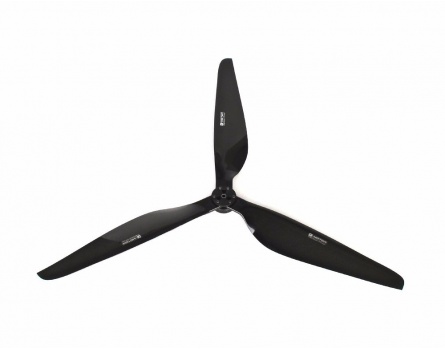Advantages of Three-Blade Propellers
In the world of maritime engineering and ship propulsion, the three-blade propeller is a time-tested and widely used marvel of design and engineering. With a history dating back to the early days of seafaring, these propellers have evolved to become an essential component in modern vessels, from sailboats to massive cargo ships. In this article, we'll explore the mechanics, advantages, and applications of three-blade propellers that keep the maritime world smoothly sailing.
The Anatomy of a Three-Blade Propeller
A three-blade propeller is a rotary device used to propel a vessel through water. It consists of three equally spaced blades radiating from a central hub. Each blade has a specific airfoil shape and angle of attack, carefully designed to maximize thrust while minimizing drag and cavitation. The hub connects the blades to the propeller shaft, which, in turn, is connected to the vessel's engine.
The design of the blades is a crucial aspect of a three-blade propeller's efficiency. The combination of the blade shape, pitch, and angle determines how effectively the propeller can convert the engine's power into forward motion. Engineers strive to strike a balance between the need for high thrust, fuel efficiency, and low vibration.
Advantages of Three-Blade Propellers
Three-blade propellers offer several advantages that make them a popular choice for many marine applications:
Efficiency: Three-blade propellers are known for their efficient performance in a wide range of operating conditions. Their design allows for a good balance between thrust and fuel consumption, making them ideal for both displacement and planing hulls.
Smooth Operation: Due to their symmetry and balanced design, three-blade propellers tend to produce less vibration and noise compared to other propeller types. This is especially important for passenger vessels and luxury yachts, where comfort is a priority.
Maneuverability: Three-blade propellers provide excellent maneuverability. Their design allows for quick response and precise control, which is crucial for docking, navigating tight waterways, and avoiding obstacles.
Low Cavitation: The design of the blades minimizes cavitation, a phenomenon that can cause damage to the propeller and reduce efficiency. This results in less wear and tear on the propeller and a longer service life.
Versatility: Three-blade propellers are versatile and well-suited for a wide range of vessel sizes and types. They are commonly used in recreational boats, fishing vessels, and even larger commercial ships.
Reduced Draft: In shallow waters, a three-blade propeller's design helps reduce the vessel's draft, allowing it to navigate in areas with limited water depth.
Applications of Three-Blade Propellers
Three-blade propellers find application in a multitude of marine vessels:
Recreational Boats: From small sailboats to luxury yachts, three-blade propellers are a popular choice for pleasure craft due to their smooth operation and reliability.
Fishing Vessels: Commercial fishing boats often use three-blade propellers for their efficiency and maneuverability, enabling them to navigate different sea conditions.
Cargo Ships: Large cargo ships and container vessels frequently rely on multiple three-blade propellers for their ability to handle the immense weight and size of the vessels.
Navy Ships: Military ships, such as frigates and destroyers, also employ Carbon Fiber propellers for their ability to offer a balanced combination of speed and maneuverability.
Tugboats: Tugboats depend on the power and control of three-blade propellers to assist larger ships in docking and navigating confined spaces.
In conclusion, the three-blade propeller is a shining example of engineering excellence that has stood the test of time. Its efficiency, versatility, and reliability have made it a go-to choice for vessels of various sizes and applications. As technology continues to advance, we may see further refinements in three-blade propeller design, but their fundamental principles will likely remain a cornerstone of marine propulsion for many years to come. Whether you're sailing the high seas or simply enjoying a day on the water, chances are you're benefiting from the quiet power of a three-blade propeller, ensuring your journey is a smooth and efficient one.
For more details please contact T-MOTO


评论
发表评论